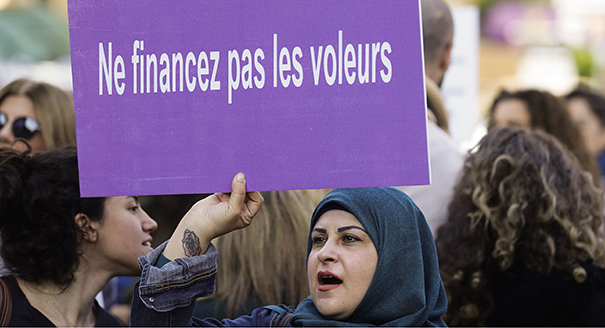Registration
You will receive an email confirming your registration.
Since the mass protests in October and the ensuing resignation of Prime Minister Saad Hariri, Lebanon’s economic and fiscal crisis has accelerated, with the World Bank forecasting a recession. The ruling political parties’ inability to compromise delayed government formation. Meanwhile, Lebanese citizens are facing increasing capital controls and restrictions from banks, slashes in their salaries, dismissals by employers, and a rising poverty rate. The country is risking a shortage in several basic goods and medicine.
This environment has accentuated fears for the future amongst the Lebanese and speculations of possible haircuts on deposits, an official devaluation of the Lebanese pound, and a possible default on government debt. In this context, there is an urgent need to implement wide-ranging and forward-facing fiscal, economic, and public sector reforms to allow for economic recovery and long-term stability.
In light of these events, the Carnegie Middle East Center held a panel discussion on Monday, December 23 at the Hilton Beirut Downtown Hotel. The panel analyzed Lebanon’s economic and financial challenges, the root causes, and the social and political repercussions. The event will be held in English with simultaneous interpretation into Arabic.
Speakers
Amer Bisat is the managing director at Blackrock and a former senior economist at the International Monetary Fund.
Ishac Diwan is a professor of economics at the Paris School of Economics and director of the Chaire Socio-économic du Monde Arabe.
Haneen Sayed is the lead human development specialist at the World Bank in Lebanon.
Chair
Maha Yahya is the director of the Carnegie Middle East Center.
